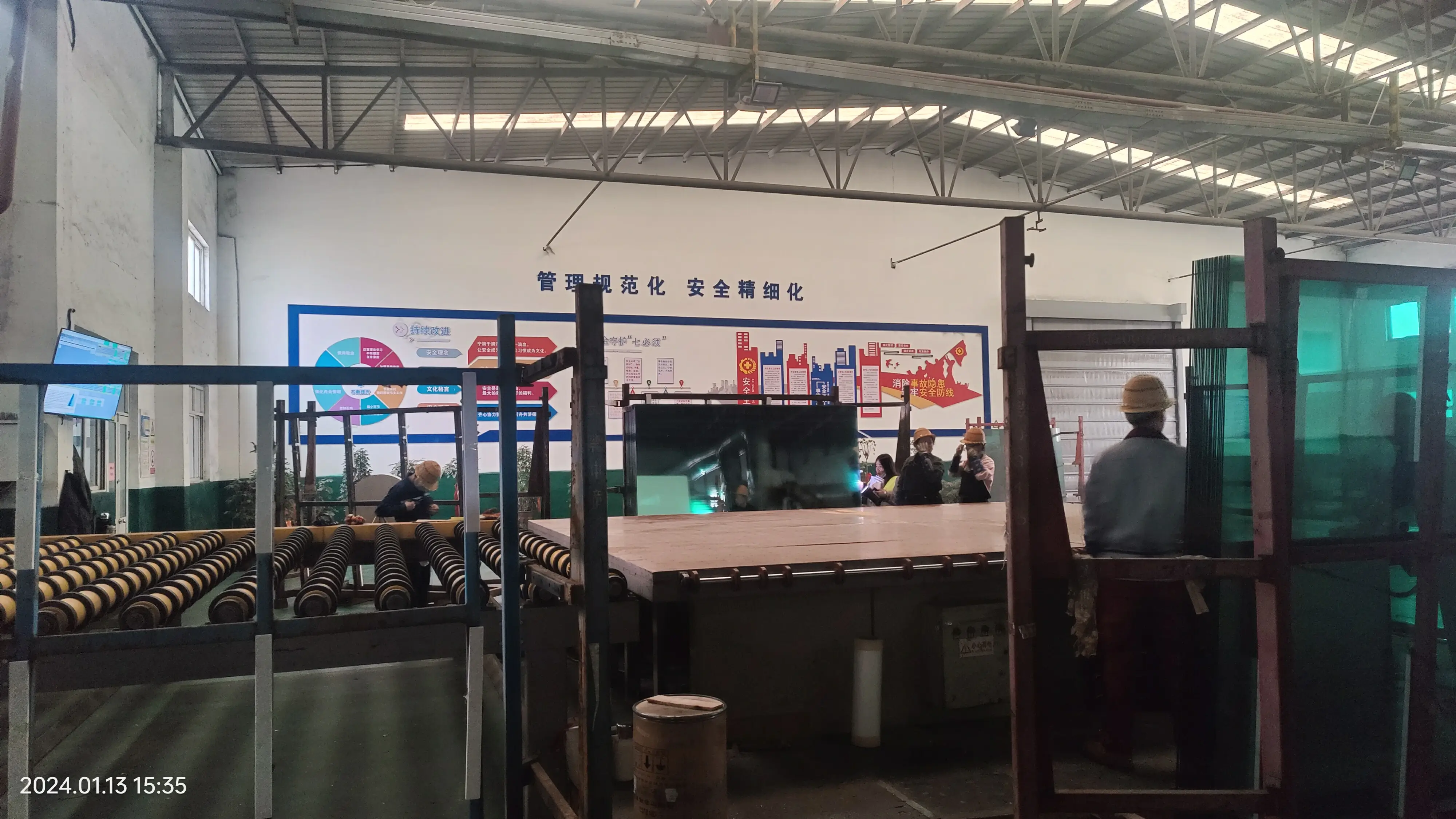

The Versatility and Importance of 8mm Float Glass
Float glass, a widely recognized and utilized material in the building and manufacturing industries, has gained great popularity due to its clarity, flexibility, and strength. Among the various thicknesses available, 8mm float glass stands out for its balance of sturdiness and weight, making it an ideal choice for a range of applications.
Float glass is manufactured using a process where molten glass is floated on a bed of molten tin. This method ensures a uniform thickness and a smooth surface devoid of distortions, delivering exceptional optical clarity. The 8mm thickness is particularly favored in residential and commercial buildings for both functional and aesthetic reasons. It is robust enough to provide structural support yet light enough to manage easily during installation.
One of the primary uses of 8mm float glass is in the construction of windows and facades. The thickness of 8mm offers an excellent thermal performance and sound insulation, protecting interiors from external noise and temperature fluctuations. In urban areas where noise pollution is a concern, buildings fitted with 8mm float glass windows can provide a peaceful living environment. Additionally, this thickness is often employed in double-glazing systems, where it contributes to energy efficiency by minimizing heat loss.
Another popular application for 8mm float glass is in glass partitions and balustrades
. Its strength allows it to be used as a safety barrier without obstructing the view, creating an open and airy feel in both commercial and residential spaces. This is particularly important in modern architectural designs, where the blending of indoor and outdoor environments is a key feature. The transparency of the glass coupled with its structural integrity makes it an ideal material for creating elegant and safe environments.
In the retail sector, 8mm float glass is often used in display cases and shelving units. Its clarity enhances the visibility of merchandise, making products more appealing to consumers. Retailers can showcase their items without distractions, while the robust nature of the glass ensures that it can withstand everyday use in busy environments. Moreover, when treated with specific coatings, 8mm float glass can offer added protection against UV rays, preserving the integrity of displayed products from fading over time.
Additionally, 8mm float glass is commonly utilized in furniture design, such as coffee tables or desk surfaces. The sleek appearance and durability of the glass provide a modern touch while also ensuring longevity. Designers appreciate the adaptability of 8mm float glass, as it can be easily cut or shaped to fit unique furniture designs.
In recent years, advances in glass technology have led to the development of energy-efficient options, including low-emissivity (low-E) treatments that can be applied to 8mm float glass. These coatings reflect heat while allowing natural light to enter, promoting energy efficiency without sacrificing aesthetics. This innovation is vital in creating sustainable buildings that meet modern environmental standards.
In conclusion, 8mm float glass serves a multitude of purposes across various industries, from construction to retail and interior design. Its combination of strength, clarity, and aesthetic appeal makes it a preferred choice for many applications. As technology continues to evolve, the role of float glass, especially the 8mm variant, will likely expand, further enhancing its significance in contemporary design and architecture. Embracing this remarkable material not only elevates the visual quality of spaces but also contributes to the overall functionality and energy efficiency of buildings.